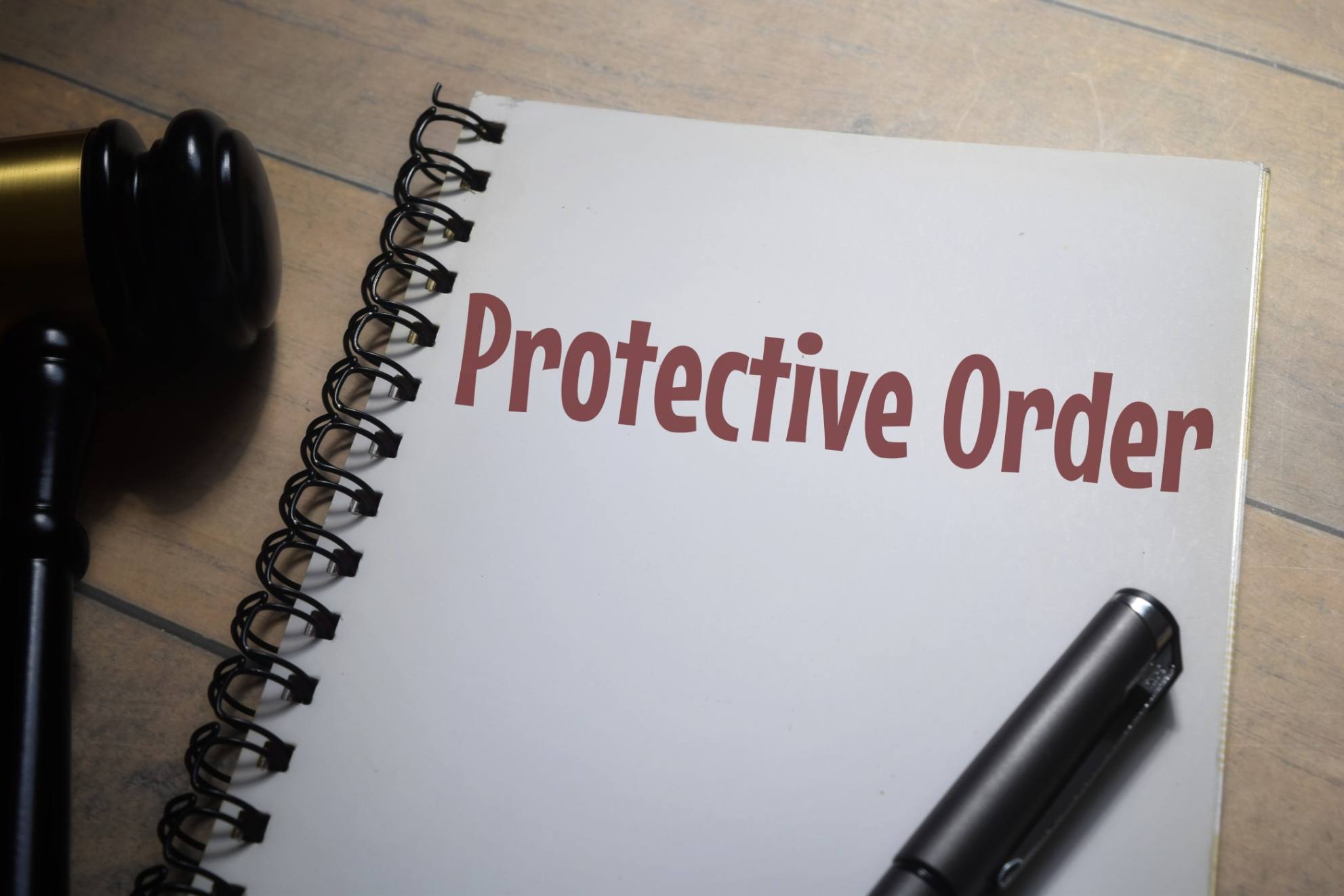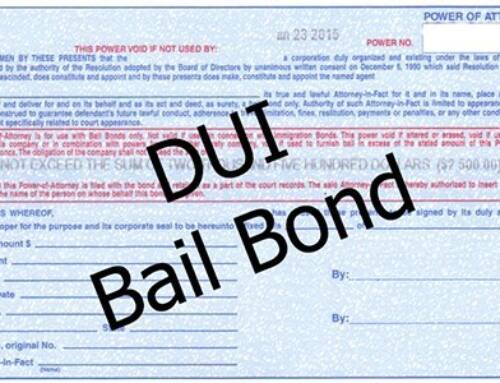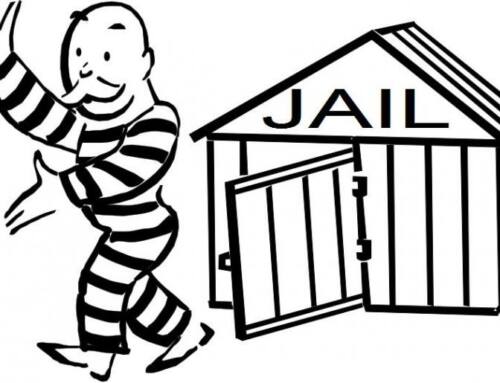Bail Amount For Violating A Restraining Order In Nevada
The bail amount for violating a restraining order in Nevada depends on whether the violation is considered a felony or a misdemeanor.
Likewise, the court will look into the type of restraining order that was issued, why it was issued, and the number of offenses that have been previously committed.
To learn more about Nevada restraining orders and the purpose of bail, check out our article on the subject.
Bail Amount Specifics For Violating A Restraining Order
Violating a restraining order that is the result of domestic violence is usually considered a misdemeanor offense and is punishable by jail time of up to 6 months and fines amounting to $1,000.
In general, the amount of bail for misdemeanor restraining order violations in Nevada ranges from $1,000 to $2,000, while for felonies, the bail amount ranges from $5,000 to $10,000.
If a defendant violates a restraining order, and the bail amount is set at $10,000 or more, then the defendant must prove that they have the ability to pay their bail amount in full before they are released from custody.
Keep in mind that the bail someone pays for violating a restraining order is an additional amount to what they pay for allegedly committing a crime.
Therefore, these amounts can easily pile up.
To learn more about restraining orders, keep reading.
What Is A Restraining Order?
A restraining order is a court order that requires a person to stop doing something or to stay away from someone else.
There are different types of restraining orders, but they all share the same goal of keeping the victim safe from harm.
The victim or “protected person” is the party that requests the restraining order. The “restrained person,” meanwhile, is the recipient of the order.
The most common type of restraining order is a domestic violence restraining order, which is issued to protect victims of domestic violence from their abusers by:
- Barring abusers from contacting their victims
- Barring abusers from going near their victims’ homes or workplaces
- Barring abusers from owning firearms.
Other types of restraining orders are (1) civil restraining orders, which are issued in civil cases to protect litigants and witnesses from harassment or assault, and (2) elder abuse restraining orders, which are issued to protect seniors from abuse.
Restraining orders are an important tool for keeping people safe from harm, and they can provide a much-needed sense of security during difficult times.
Restraining Order Hearing: How To Petition For A Restraining Order In Nevada
A restraining order may be the best solution for ending a physically or emotionally abusive relationship.
If a person has been affected by abuse, and they feel that their safety is at risk, they may want to consider getting a restraining order.
This will help to keep their abuser away from them and their property.
In Nevada, to petition for a restraining order, the petitioner must file a written complaint with the court. The complaint must include information about the relationship between the petitioner and the respondent, along with the details about the alleged abuse.
The petitioner may also need to provide evidence of abuse, such as photographs or video recordings of the violence.
After reviewing the complaint and evidence, the court may issue a restraining order against the respondent.
What Happens After You Get A Nevada Restraining Order
If you request a restraining order in Nevada, the court will issue an order that prohibits the person from contacting you.
The order will almost certainly require them to stay away from your residence, workplace, or any other specific location. If they violate the order, the court can take various actions, including issuing a warrant for their arrest.
To make the order effective, you must file the paperwork with the court, make an appearance in court, serve the restraining order to the other party, and maintain contact with local law enforcement.
It is important to remember that a restraining order cannot prevent an abuser from committing violence against someone else. However, it does create a deterrent to violence.
Classification of NV Protection Restraining Orders
The most common types of restraining orders that can be requested are as follows:
Domestic Violence Restraining Order – A Domestic Violence Restraining Order (DVRO) is a court order that is issued when there is credible evidence that an individual has been or is likely being subjected to abuse or violence by their intimate partner.
The order may prohibit the abuser from contacting or coming within a certain number of yards of the victim.
Elder or Dependent Adult Abuse Restraining Order – An Elder or Dependent Adult Abuse Restraining Order is a civil court order that is used to protect individuals aged 65 or older from abuse.
The order can be issued if a person believes that they are being abused by a spouse, partner, family member, or anyone else.
The order requires the abuser to stop the abuse and stay away from the victim. The order can also require the abuser to stay away from any other elders or dependents.
Civil Harassment Restraining Order – Civil harassment restraining orders are a legal tool used to protect individuals from harassment.
Generally, these orders require the harasser to stop harassing the victim and/or refrain from contacting them. They can also include provisions specifying what behavior is allowed and what is not allowed.
For example, the order can protect both landlords and tenants and can also be used to stop any type of harassing behavior during a money dispute.
Generally, the order must be requested by the individual who is being harassed but can also be requested by a neighbor, family member, or friend on behalf of another neighbor/individual.
Workplace Violence Restraining Order – Much like a Civil Harassment Restraining Order, a Workplace Violence Restraining Order (WVRO) is a civil law order that can be issued by a court to prevent an individual from engaging in violent or abusive behavior in the workplace.
The order may be issued if the court determines that the individual is likely to engage in violence or abuse against co-workers or other employees.
The order may also require the respondent to stay away from the workplace and impose other restrictions on their behavior.
Temporary Protective Order (TPO) – One may also request a temporary protective order (TPO) or an extended protection order (EPO) from a judge. These are issued in more serious cases for which a restraining order is not adequate.
Once a judge has issued a restraining order or a protective order, the restrained person may be required to do the following:
- Personal conduct orders – This order is to stop the restrained person from doing certain actions, which include stalking, calling, sending messages, making threats, harassing the protected person, or disturbing the peace of the protected person.
- Stay-away orders – This type of protection order requires that the restrained person keep a certain distance (ex. 100 yards) from the protected person, their place of residence, and their work.
- Residence exclusion orders – This order is usually requested in the case of domestic violence or abuse where the restrained person and the protected person live in the same house. The restrained person will be ordered to move out of the protected person’s home.
Duration of A Nevada Restraining Order
A Nevada restraining order is a legal document that can last for varying periods of time, depending on the circumstance.
If you have a restraining order in Nevada, here are some key points to remember:
- A restraining order can last up to five years in Nevada but can also be as short as 30 days.
- The length of the order will be based on the specific details of your case.
- Factors that can affect the duration of a restraining order include whether there has been violence or threats involved and whether the person who is being restrained has shown past behavior that indicates they will be violent again in the future.
- Upon expiration, the restraining order can be extended again, but only if the petitioner demonstrates that there is still a threat of physical or emotional abuse on the part of the respondent.
Enforcement of A Nevada Restraining Order
Nevada restraining orders can be enforced in different ways.
The most common way is through the police. If someone violates a restraining order, the police can simply be called to arrest them.
If the offender has left the scene, it is not that difficult to show up to the person’s residence or place of employment with a police officer. The person would then be informed of their offense and arrested.
Another way to enforce a restraining order is for the person who wants the order to go to a judge and file a petition.
This requires more evidence, but if it is granted, it will impose stricter terms on the person against whom the restraining order is being filed. This often increases the likelihood that the order will be enforced.
A final way to enforce a restraining order is through family and friends. It is not unreasonable for someone to go to their family and friends and ask them to deescalate a situation with their abuser, and more importantly, demand that their abuser maintain distance.
What If I Violate The Terms of My Nevada Restraining Order?
Restraining orders must be taken seriously, as it’s not uncommon for “restrained persons” to find themselves in violation of their restrictions, even if just by accident.
If you violate the terms of your restraining order, there are a few things you should know.
First, our bail bond agency can help you deal with the situation by getting you out of jail fast.
Second, if you are arrested and charged with a crime related to the violation, our team will guide you through the bail bond process.
Third, since we believe in the principle of innocent until proven guilty, we will keep your information as discreet as possible.
If you or someone you know has a restraining order, and you are looking to get a bail bond…look no further.
All N One Bail Bonds, formerly Lightning Bail Bonds, is available 24/7 to meet your needs.
Give us a call at (702) 333-2663.






